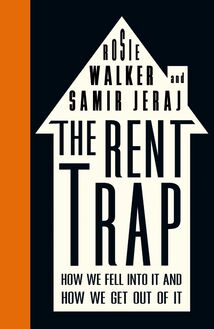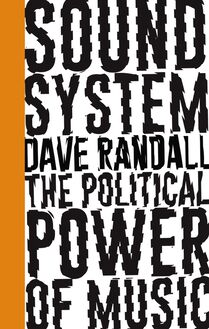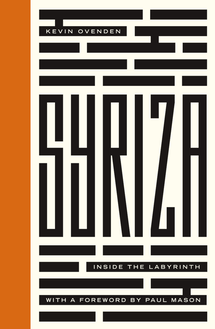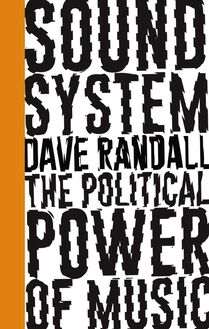-
 Univers
Univers
-
 Ebooks
Ebooks
-
 Livres audio
Livres audio
-
 Presse
Presse
-
 Podcasts
Podcasts
-
 BD
BD
-
 Documents
Documents
-
- Cours
- Révisions
- Ressources pédagogiques
- Sciences de l’éducation
- Manuels scolaires
- Langues
- Travaux de classe
- Annales de BEP
- Etudes supérieures
- Maternelle et primaire
- Fiches de lecture
- Orientation scolaire
- Méthodologie
- Corrigés de devoir
- Annales d’examens et concours
- Annales du bac
- Annales du brevet
- Rapports de stage
La lecture à portée de main
Vous pourrez modifier la taille du texte de cet ouvrage
Découvre YouScribe en t'inscrivant gratuitement
Je m'inscrisDécouvre YouScribe en t'inscrivant gratuitement
Je m'inscrisEn savoir plus
Vous pourrez modifier la taille du texte de cet ouvrage
En savoir plus

Description
This book goes beyond cultural categories that overshadow more complex realities when thinking about the 'Muslim world', while highlighting the ways in which these cultural prejudices have informed ideological positions. Karaveli argues that Turkey's culture and identity have disabled the Left, which has largely been unable to transcend these divisions.
This book asks the crucial question: why does democracy continue to elude Turkey? Ultimately, Karaveli argues that Turkish history is instructive for a left that faces the global challenge of a rising populist right, which succeeds in mobilising culture and identity to its own purposes.
Published in partnership with the Left Book Club.
Series Preface
Timeline
List of Illustrations
Introduction
1. A Pattern of Violence
2. Kemalism and the Left
3. Capitalist Foundation
4. How the Right Won the People
5. Social Democratic Hope
6. Vengeance of the Right
7. The Rise of the Islamists
Epilogue: Class, Identity and Democracy
Afterword: Attacking the Kurds - The 'Return' of Kemalism
Notes
Bibliography
Index
Sujets
Political Ideologies
HISTORY
POLITICAL SCIENCE
Histoire
Erdogan
Alevís
Turquía
Communist Party of Turkey
Labour Party of Turkey
Kemalist ideology
Modern history
Alevi
History of the Middle East
Republican People's Party
Cold War
General officer
International relations
Middle East
Mustafa Kemal Atatürk
Erdo?an
Armenian Genocide
General
Abdullah Öcalan
Turkey
Guerre froide
Karl Marx
Renaissance
Europe
Informations
| Publié par | Pluto Press |
| Date de parution | 20 juin 2018 |
| Nombre de lectures | 0 |
| EAN13 | 9781786802668 |
| Langue | English |
Informations légales : prix de location à la page 0,0748€. Cette information est donnée uniquement à titre indicatif conformément à la législation en vigueur.
Extrait
Why Turkey is Authoritarian
Join the Left Book Club
Membership of the Left Book Club will give you at least four specially selected books each year, plus invitations to author events and discussion groups.
To join, please visit www.leftbookclub.com
Also available
A People s History of the Russian Revolution Neil Faulkner
A Party with Socialists in It A History of the Labour Left Simon Hannah Foreword by John McDonnell
Being Red A Politics for the Future Ken Livingstone
Syriza Inside the Labyrinth Kevin Ovenden Foreword by Paul Mason
Student Revolt Voices of the Austerity Generation Matt Myers Foreword by Paul Mason
Sound System The Political Power of Music Dave Randall
Cut Out Living Without Welfare Jeremy Seabrook
The Rent Trap How We Fell Into It and How We Get Out of It Rosie Walker and Samir Jeraj
Why Turkey is Authoritarian
From Atat rk to Erdo an
Halil Karaveli
First published 2018 by Pluto Press
345 Archway Road, London N6 5AA
www.plutobooks.com
Copyright Halil Karaveli 2018
The right of Halil Karaveli to be identified as the author of this work has been asserted by him in accordance with the Copyright, Designs and Patents Act 1988.
The Left Book Club pays homage to the original Left Book Club founded by Victor Gollancz in 1936.
British Library Cataloguing in Publication Data
A catalogue record for this book is available from the British Library
ISBN 978 0 7453 3756 2 Hardback
ISBN 978 0 7453 3755 5 Paperback
ISBN 978 1 7868 0265 1 PDF eBook
ISBN 978 1 7868 0267 5 Kindle eBook
ISBN 978 1 7868 0266 8 EPUB eBook
This book is printed on paper suitable for recycling and made from fully managed and sustained forest sources. Logging, pulping and manufacturing processes are expected to conform to the environmental standards of the country of origin.
Typeset by Stanford DTP Services, Northampton, England
Simultaneously printed in the United Kingdom and United States of America
This book is dedicated to Saga Karaveli
Contents
Series Preface
Timeline
List of Illustrations
Introduction
1 A Pattern of Violence
2 Kemalism and the Left
3 Capitalist Foundation
4 How the Right Won the People
5 Social Democratic Hope
6 Vengeance of the Right
7 The Rise of the Islamists
Epilogue: Class, Identity and Democracy
Afterword: Attacking the Kurds - The Return of Kemalism
Notes
Bibliography
Index
Series Preface
The first Left Book Club (1936-48) had 57,000 members, had distributed two million books, and had formed 1,200 workplace and local groups by the time it peaked in 1939. LBC members were active throughout the labour and radical movement at the time, and the Club became an educational mass movement, remodelling British public opinion and contributing substantially to the Labour landslide of 1945 and the construction of the welfare state.
Publisher Victor Gollancz, the driving force, saw the LBC as a movement against poverty, fascism, and the growing threat of war. He aimed to resist the tide of austerity and appeasement, and to present radical ideas for progressive social change in the interests of working people. The Club was about enlightenment, empowerment, and collective organisation.
The world today faces a crisis on the scale of the 1930s. Capitalism is trapped in a long-term crisis. Financialisation and austerity are shrinking demand, deepening the depression, and widening social inequalities. The social fabric is being torn apart. International relations are increasingly tense and militarised. War threatens on several fronts, while fascist and racist organisations are gaining ground across much of Europe. Global warming threatens the planet and the whole of humanity with climate catastrophe. Workplace organisation has been weakened, and social democratic parties have been hollowed out by acceptance of pro-market dogma. Society has become more atomised, and mainstream politics suffers an acute democratic deficit.
Yet the last decade has seen historically unprecedented levels of participation in street protest, implying a mass audience for progressive alternatives. But socialist ideas are no longer, as in the immediate post-war period, in the tea . One of neoliberalism s achievements has been to undermine ideas of solidarity, collective provision, and public service.
The Left Book Club aspires to meet this ideological challenge. Our aim is to offer high-quality books at affordable prices that are carefully selected to address the central issues of the day and to be accessible to a wide general audience. Our list represents the full range of progressive traditions, perspectives, and ideas. We hope the books will be used as the basis of reading circles, discussion groups, and other educational and cultural activities relevant to developing, sharing, and disseminating ideas for change in the interests of the common people at home and abroad.
Timeline
1000 (ca.) Turkic tribes from Central Asia begin to enter Anatolia, the peninsula of which the present state of Turkey mostly consists.
1299 (ca.) The Turkic chieftain Osman founds the emirate that will later expand into the Ottoman Empire.
1838 The Ottoman government signs a free-trade agreement with Great Britain, soon followed by similar treaties with several other European states, that turns the Ottoman lands into an open market for European products, ruining local crafts and industry.
1839 Under the pressure of European powers, the Ottoman government declares the legal equality of all subjects, regardless of their religion.
1876 The Ottoman state becomes a constitutional monarchy.
1878 Sultan Abd lhamid II suspends the constitution and reinstitutes despotic rule.
1881 The former grand vizier (prime minister) Mithat Pasha, the author of the liberal constitution of 1876 and the first social and democratic reformer in Ottoman history, is put to death in his prison cell, likely on the orders of the Sultan Abd lhamid II.
1908 The Young Turk revolution. The constitutional order is restored and the parliament is reopened.
1914 The Ottoman Empire, ruled by the nationalist Young Turks, enters the First World War on the side of Germany and Austria-Hungary.
1915 The Armenian genocide. Around 1 million Ottoman Armenians are estimated to have been put to death by the Young Turk regime.
1919-1923 The Anatolian war: Turkish national forces led by Mustafa Kemal, later Atat rk, fight occupying Greek and French forces, but also the indigenous Greeks and Armenians of Anatolia.
1921 The leadership of Communist Party of Turkey is massacred, in all likelihood on the orders of the nationalist leader Mustafa Kemal.
1922 The Ottoman sultanate is abolished.
1923 The Republic of Turkey is founded. The entire Greek Orthodox population of Anatolia, over 1 million, is expelled from the new state of Turkey after an agreement between Turkey and Greece. Greece expels several hundred thousand Muslims to Turkey.
1937-1938 Tens of thousands of Kurds in the province of Dersim are massacred by the Turkish army and air force.
1950 The first free election is held. The conservative Democrat Party comes to power.
1960 Turkey s first military coup takes place.
1961 Parliamentary rule is restored.
1963 Workers are accorded collective bargaining rights and the right to strike.
1971 A right-wing military coup is staged to pre-empt a planned left-wing military coup.
1975 The start of a fascist campaign of mass violence. Thousands of left-wing students, teachers, intellectuals and activists are killed between 1975 and 1980. The fascist militia acts with impunity, protected by right-wing governments and the military. The first attempt to kill B lent Ecevit, the social democratic leader, is made.
1977 Workers celebrating 1 May are massacred in Taksim square in Istanbul. Social democrats win the parliamentary election.
1978 In a pogrom in the city of Kahramanmara , the fascist militia, abetted by the police and the military, massacres several hundred Alevis, a left-leaning religious minority.
1980-1983 Right-wing military dictatorship. Hundreds of thousands of leftists are imprisoned. Several hundred are tortured to death. The junta imposes a neoliberal economic regime and bolsters Islamic influence as a counterweight to the left.
1997 The first Islamist-led government of Turkey is forced to resign after pressure from the military and the state establishment.
2001 Islamists who want to have good relations with the United States and the European Union, and who are supported by the business circles in Turkey, form the conservative Justice and Development Party (AKP).
2002 The AKP comes to power.
2007 The Armenian-Turkish journalist Hrant Dink is assassinated.
2015 Over 100 Turkish and Kurdish leftist peace activists are killed in a terrorist attack in Ankara.
2016 A faction of the military tries to overthrow President Recep Tayyip Erdo an, but the coup attempt, which is tacitly supported by the United States, fails.
2016 Selahattin Demirta , the co-leader of the pro-Kurdish and socialist Peoples Democratic Party, is imprisoned along with other leading cadres of the party.
List of Illustrations
Figure 1. The newly elected president Mustafa Kemal, among religious and other notables on a tour in Anatolia in 1924
Figure 2. The conservative prime minister Adnan Menderes in rural Anatolia
Figure 3. Hat off for the people: the conservative leader S leyman Demirel
Figure 4. Social democratic hope: the centre-left leader B lent Ecevit
Figure 5. Ecevit in his characteristic Jeff cap, worn by the peasants in Anatolia
Figure 6. Mimicking Hitler: Alparslan T rke , the Turkish fascist leader
Figure 7. Necmettin Erbakan, the father of political Islam in Turkey
Figure 8. One with the people: Recep Tayyip Erdo an has claimed to represent the interests of the popular classes
All images are reproduced courtesy of the archive of the Directorate General of Press and Information, Republic of Turkey Office of
-
 Univers
Univers
-
 Ebooks
Ebooks
-
 Livres audio
Livres audio
-
 Presse
Presse
-
 Podcasts
Podcasts
-
 BD
BD
-
 Documents
Documents
-
Jeunesse
-
Littérature
-
Ressources professionnelles
-
Santé et bien-être
-
Savoirs
-
Education
-
Loisirs et hobbies
-
Art, musique et cinéma
-
Actualité et débat de société
-
Jeunesse
-
Littérature
-
Ressources professionnelles
-
Santé et bien-être
-
Savoirs
-
Education
-
Loisirs et hobbies
-
Art, musique et cinéma
-
Actualité et débat de société
-
Actualités
-
Lifestyle
-
Presse jeunesse
-
Presse professionnelle
-
Pratique
-
Presse sportive
-
Presse internationale
-
Culture & Médias
-
Action et Aventures
-
Science-fiction et Fantasy
-
Société
-
Jeunesse
-
Littérature
-
Ressources professionnelles
-
Santé et bien-être
-
Savoirs
-
Education
-
Loisirs et hobbies
-
Art, musique et cinéma
-
Actualité et débat de société
- Cours
- Révisions
- Ressources pédagogiques
- Sciences de l’éducation
- Manuels scolaires
- Langues
- Travaux de classe
- Annales de BEP
- Etudes supérieures
- Maternelle et primaire
- Fiches de lecture
- Orientation scolaire
- Méthodologie
- Corrigés de devoir
- Annales d’examens et concours
- Annales du bac
- Annales du brevet
- Rapports de stage













